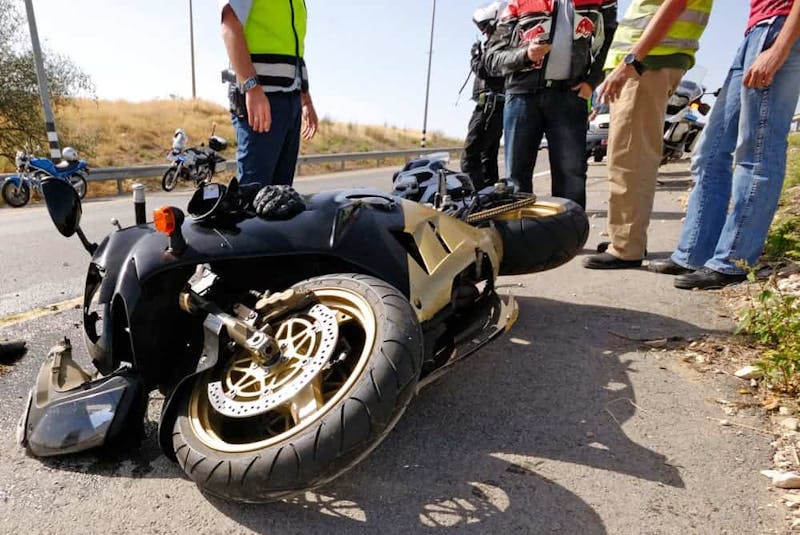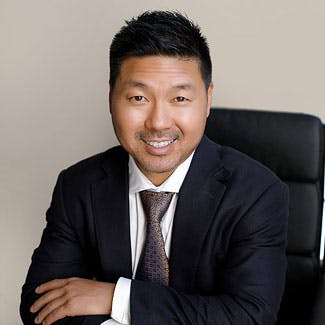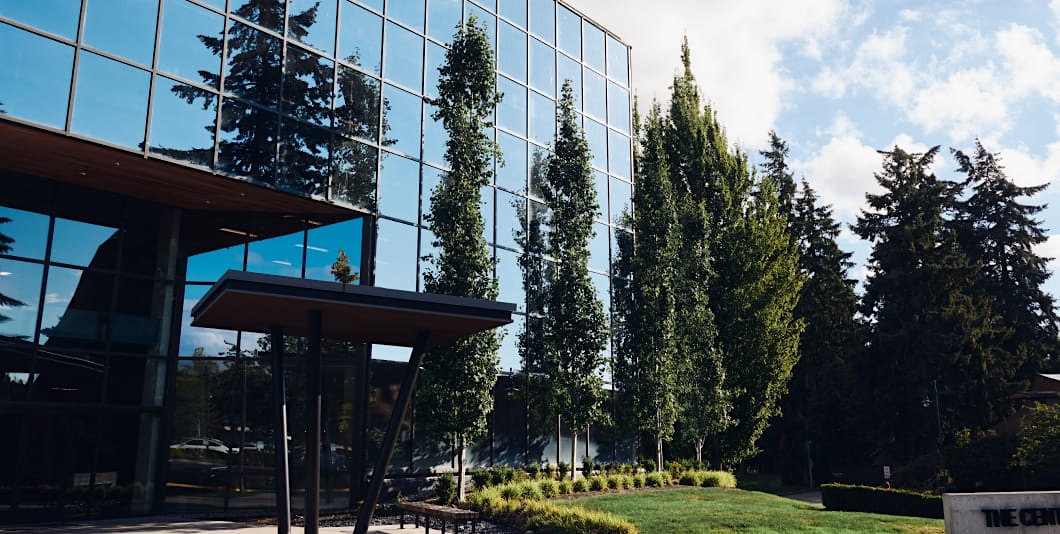
A motorcycle accident can lead to a lifetime of overwhelming financial, physical, and emotional struggles. After such an incident, you can take specific steps to ensure your safety, well-being, and legal protection.
Below is some information on what to do after a motorcycle accident and injuries. Most importantly, if you have any doubts or concerns about what to do or not do, never hesitate to contact a Federal Way motorcycle accident attorney for a free consultation. They can assess your legal options to seek compensation from the parties that caused your crash and handle the entire legal process for you.
Get Immediate Medical Attention
The first and most important step after a motorcycle accident is prioritizing your health and safety. Seek immediate treatment. Remember that some injuries, like internal trauma or concussions, may not immediately appear. Once you notice any possible injury symptoms, see a doctor or head to the ER for an evaluation.
Follow Through with Medical Treatment
When you get your initial assessment, medical professionals should diagnose any identifiable injuries and design a treatment plan for you. You might have to visit a specialist, such as an orthopedist, to nail down your specific course of treatment.
Adhering to medical advice and following through with treatment recommendations protects your well-being and establishes a documented record of your injuries.
If you stop treatment early or miss appointments, you can jeopardize your recovery. It can also raise red flags with insurance companies once you file an injury claim. If you state you have serious injuries and miss treatment, it will cast doubt on your entire claim.
Maintain Documentation
While your motorcycle accident lawyer will advise on the evidence you need for your claim, do everything possible to keep and organize evidence in your possession.
Some documents you should keep track of include:
- Treatment plans
- Discharge documents
- Medical bills you already received
- Doctor referrals
- Repair estimates for your motorcycle
- Out-of-pocket expenses for transportation, medical equipment, and other injury-related costs
- Any additional costs of childcare or other assistance due to your injuries
- Transportation and mileage records to and from medical appointments
- Journal discussing your pain levels, restrictions, and other injury-related struggles each day
Also, preserve all relevant evidence, including medical records, accident reports, photos, witness statements, and any correspondence related to the accident. This documentation will build a strong case. Having these documents ready for legal consultation can help your case get going as soon as possible.
Limit Conversations with Other Parties and Insurers
While you should exchange basic information, avoid discussing fault or liability with other parties involved in the accident or with their insurance companies. Anything you say might cause issues later in the legal process.
An insurance representative might reach out to you shortly after the accident when you’ve barely had time to process what happened. It might seem right to speak with them and answer their questions – after all, don’t they need this information to pay your claim? However, insurers are on a mission to reduce your claim, and these conversations aim to achieve this goal.
Even a simple “I’m fine” when an adjuster asks how you are might become evidence that you are not in pain or struggling with injuries. Too many people believe they have harmless conversations, only to later learn an adjuster twisted a statement to use against them.
If someone contacts you, politely inform them that you plan to hire an attorney, and any questions will need to go through your legal representative.
Do Not Accept a Settlement Without Legal Advice
Never accept a settlement without discussing it with an attorney. Insurance companies might contact you with a settlement offer soon after the accident. For some people, getting a quick check without any additional hassle might seem ideal. However, accepting this initial offer can damage your future.
Insurance companies make quick lowball offers, hoping to settle the claim for much less than it’s worth, which saves the corporation money. What seems too good to be true usually is – and this is the case with quick insurance settlement offers. Early settlements may not fully cover your losses, especially if your injuries lead to long-term complications.
Avoid accepting any offers without consulting a motorcycle accident attorney. Your lawyer will advise you on what your case is truly worth and ensure you don’t accept less than you need and deserve.
Do Not Accept a Settlement Without Legal Advice
Never accept a settlement without discussing it with an attorney. Insurance companies might contact you with a settlement offer soon after the accident. For some people, getting a quick check without any additional hassle might seem ideal. However, accepting this initial offer can damage your future.
Insurance companies make quick lowball offers, hoping to settle the claim for much less than it’s worth, which saves the corporation money. What seems too good to be true usually is – and this is the case with quick insurance settlement offers. Early settlements may not fully cover your losses, especially if your injuries lead to long-term complications.
Avoid accepting any offers without consulting a motorcycle accident attorney. Your lawyer will advise you on what your case is truly worth and ensure you don’t accept less than you need and deserve.
Consult a Motorcycle Accident Attorney
After seeking medical attention, consulting an experienced motorcycle accident attorney should be your next step. A skilled attorney can guide you through the complex legal process, protect your rights, and seek fair compensation for your injuries and losses. Their experience in personal injury law and motorcycle accident claims will be invaluable as they advocate for your rights and work to secure the compensation you deserve.
When you consult an attorney, they’ll review the details of your case and your documentation, assess the extent of your injuries, and explain your legal rights and options. They can advise you on the best course of action and guide you through seeking compensation for all your eligible losses.
Your attorney will communicate with insurance companies on your behalf to prevent insurers from infringing on your rights. They’ll handle negotiations to seek a fair settlement that adequately covers your losses. Once you receive a settlement offer, your lawyer will advise you whether it is fair or if they should keep negotiating.
If necessary, your attorney will prepare your case for litigation and represent you in court. This happens when the insurance company denies their policyholder’s liability for the accident or simply refuses to offer you a favorable amount. Litigation involves strict procedural rules, but the right attorney can navigate this highly complex process with skill and your best interests in mind.
Dealing with a motorcycle crash and severe injuries is never easy, so seek help from medical and legal professionals.
Injuries and Losses from Motorcycle Accidents
Motorcycle accidents can result in a wide range of injuries and losses due to the vulnerability of riders compared to occupants of enclosed vehicles. These injuries can be severe and have long-lasting effects on physical, emotional, and financial well-being.
Here are some common injuries and losses that motorcycle accident victims may suffer:
- Traumatic brain injuries (TBIs) – Head injuries are a significant concern in motorcycle accidents, even with helmets. TBIs can cause cognitive impairments, memory issues, and permanent disabilities.
- Spinal cord injuries – Motorcycle accidents can lead to spinal cord injuries that result in paralysis, paraplegia, or quadriplegia. These injuries can significantly curtail a victim’s mobility, independence, and quality of life.
- Fractures and broken bones – The force of impact can cause fractures and broken bones, particularly in the arms, legs, wrists, and collarbones. These injuries often require surgeries and extensive rehabilitation.
- Road rash – When a rider skids along the road surface, road rash occurs, resulting in abrasions and skin injuries. Severe road rash can lead to infections and require skin grafts.
- Soft tissue injuries – Muscle strains, ligament sprains, and other soft tissue injuries are common in motorcycle accidents due to sudden movements and impact.
- Internal injuries – The impact can cause internal injuries such as organ damage, internal bleeding, and damage to internal structures, which may not immediately appear.
- Amputations – Severe accidents can lead to the loss of limbs or extremities, significantly affecting the victim’s mobility and quality of life.
- Emotional trauma – Victims may experience post-traumatic stress disorder (PTSD), anxiety, depression, and other emotional difficulties.
These injuries can require expensive medical treatment and cause many problems in your life. You might be out of work, restricted from your favorite activities, or unable to even help around the house or care for yourself. Some people heal with time and treatment, while others experience ongoing effects of their injuries for their lifetimes.
If you need any medical treatment for your injuries, you will have medical bills, which are compensable losses in your claim. Some motorcyclists have many additional losses, and a claim should cover all past and future losses you have – both economic and non-economic.
While each motorcycle accident claim is unique, some examples of common losses are below.
- Medical expenses – The costs associated with medical treatment, surgeries, hospital stays, medications, rehabilitation, and ongoing care can be substantial.
- Rehabilitation costs – Victims often require extensive rehabilitation, including physical therapy, occupational therapy, and counseling, which can burden them and their families financially.
- Long-term care needs – Severe injuries may require long-term care, assistance with daily tasks, and modifications to the home environment.
- Lost income and earning capacity – Injuries from motorcycle accidents can lead to missed work, reduced work capacity, or even permanent disability, resulting in lost income and diminished future earning potential.
- Pain and suffering – Physical pain, emotional distress, and mental anguish are significant losses that victims may experience, impacting their overall well-being.
- Loss of enjoyment of life – Injuries sustained in a motorcycle accident can limit a victim’s ability to engage in activities they once enjoyed, leading to a decreased quality of life.
- Permanent disabilities or disfigurement – Catastrophic injuries are common to motorcyclists. Paralyzing spinal injuries, amputations, and similar injuries can leave a victim with lifelong impairments and disfigurement, which deserves compensation.
The physical, emotional, and financial burdens of a motorcycle accident can be substantial. Seeking legal representation from an experienced motorcycle accident attorney is essential to pursue fair compensation and ensure you properly account for your losses.
Wrongful Death Claims of Family Members
Tragically, some motorcycle accidents result in fatalities, placing the financial burden of funeral and burial expenses on the victim’s loved ones. Close family members might also lose the deceased’s financial support, as well as household services, companionship, parental guidance, spousal intimacy, and so much more.
The law allows certain family members to recover compensation for their tragic loss, specifically for the financial, practical, and emotional losses they endured due to the untimely death. If you are in this devastating position, follow the above steps to protect your rights and your wrongful death claim.
Why Do You Need to Protect Yourself After a Motorcycle Accident?
After a crash, you might want to take some time to regroup and pull your life back together. So, why take the above steps?
Protecting your rights following a motorcycle crash is paramount to ensure you receive the compensation and justice you deserve. By protecting your rights, you help the legal process along and increase your chances of obtaining justice and financial recovery.
Your motorcycle accident lawyer handles the legal process, including:
- Establishing who should be liable for your injuries and losses
- Accurately calculating the value of your claim
- Communicate with all applicable insurance companies on your behalf
- Negotiate with insurance adjusters for a fair settlement
- Counter insurance tactics to minimize your payment
- File a lawsuit in civil court if the insurer does not make an adequate settlement offer
- Ensure you meet all relevant deadlines, including statutes of limitations
Your lawyer takes over the process so you can focus on your physical recovery. The steps you take can help them seek justice and closure for you.
Consult a Trusted Motorcycle Accident Lawyer Immediately

Accident Lawyer
Taking these steps can significantly improve your physical recovery and the success of any legal action you pursue. By seeking immediate medical attention, following through with treatment, and enlisting the support of an experienced motorcycle accident attorney, you can work toward protecting your well-being and securing the compensation you need to move forward.
Consultations with a personal injury lawyer cost nothing with no obligation, so never wait to get the right legal team on your side.












